Worth 35% of your course grade
- Proposal: Worth 15 points of the Project 4 grade
- Progress Report: Worth 15 points of the Project 4 grade
- Genre Analysis Report: 70 points of the Project 4 grade
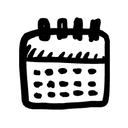 Important Dates and Deliverables
Important Dates and Deliverables
- Apr 04: Informal Proposal due by 11:59 PM (1-week grace period)
- Apr 18: Progress Report due by 11:59 PM (1-week grace period)
- Apr 26: Rough Drafts for Peer Feedback, due by 11:59 PM (No grace period)
- Apr 28: Feedback due to two classmates by 11:59 PM (No grace period)
- May 09: Project 4 (Final Exam) due by 11:59 PM (No grace period)
Goals
 The Project Assignment
The Project Assignment
You will learn everything there is to know about a kind of writing you will do in your career. You will find online resources, interview people in the field, and analyze examples. You’ll publish your findings in an analytical report that explains how the genre works. You will write a short proposal and a progress report, in addition to the final report.
Step-by-Step Details
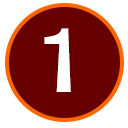 Step 1: Propose a genre to explore for your project. Return to the table you created for Project 2, or think about the writing you do or will do in your field. Choose a kind of writing that you have not previously done. Ideally, you should choose a kind of writing that you genuinely want to know more about or that you know will be critical to success in your field.
Step 1: Propose a genre to explore for your project. Return to the table you created for Project 2, or think about the writing you do or will do in your field. Choose a kind of writing that you have not previously done. Ideally, you should choose a kind of writing that you genuinely want to know more about or that you know will be critical to success in your field.
You will research the kind of writing you choose, focusing on the particular kind of writing for the next month. You will turn in a proposal for your project on Monday, April 4.
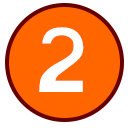 Step 2: Set your goals for the project.
Step 2: Set your goals for the project.
As has been the case for all the projects in this class, you have the opportunity to aim for the grade you want to earn on this project. The options below outline what you need to do for the grade you want to receive.
No one, in my experience, aims for a D, so I have not included any details for below-average work. If you really want a D, just put in minimal effort and do sloppy work.
 Warning! No grade is guaranteed.
Warning! No grade is guaranteed. Make sure your work is error-free, fully-developed, and ready to share with the intended audiences. Any work that is incomplete or that contains multiple errors will not earn an A or an A-.
For instance, say the writer aimed for a B and used design elements to make the report visually appealing, but the finished text was full of typos. It was obvious the writer didn’t proofread at all. The project earns a C rather than a B.
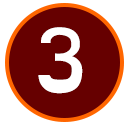 Step 3: Write your analytical report.
Step 3: Write your analytical report.
Research and write your analytical report in your word processor. With examples and relevant formatting, your report will likely be close to 20 pages long, though there is not a minimum or maximum page length. Write as much as you need to, but be sure to include all of the required information.
Review the example genre analysis reports to see the kind of layout and design that are appropriate for your project. Be sure to include your name on your report.
The research for your report should include the following:
- a literature review and evaluation of online resources (to learn what have other researchers already studied and said about the particular genre in question),
- interviews with people who actually write and read these documents to learn about their experiences with it,
- site inspection (examining the actual physical work environment or conditions researchers already studied and said about the particular genre in question, experiences with it, that affect the process of this particular genre is typically composed).
You will analyze and explain the rhetorical situation for your particular genre—that is, you will identify and explain the problem that creates the need for this particular form of written communication, the purpose and occasion that calls this kind of writing into being, or the work that needs to be done and to which this text responds.
You will analyze the audience or users of this particular genre of written communication, including their knowledge, experience, and work environments, their motivations for working with the genre in question, how they perceive and use the text in question, and what they do with it.
You will outline the constraints at work on the writers and the readers of these documents, including computing environments, documents, facts, and workplace objects, but also less tangible factors such as relations, beliefs, attitudes, traditions, images, interests, and motives that are in play in their organizations or workplaces.
You will include a bibliography that provides documentation for all of the resources you have consulted. You may use whatever bibliographical format you are most familiar with. Here are some tools if you are unsure what to use:
- EasyBib online citation builder creates MLA-format for free.
- Son of Citation Machine creates MLA, APA, and Chicago citations for free.
- Cite This For Me creates several styles, including IEEE, for free.
You will obtain at least three examples of the particular genre in question and analyze them to extract the generic conventions, characteristics, features, and strategies that distinguish this genre.
You will post a progress report on your project on Monday, April 18. You will post your draft for peer review by 11:59 PM on Tuesday, April 26, and post feedback to your two assigned classmates by 11:59 on Thursday, April 28. Use the advice you receive from your readers to revise your report before the due date.
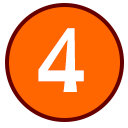 Step 4: Submit your work in Canvas.
Step 4: Submit your work in Canvas.
When you are finished with the project, you will upload your file on Canvas. Details on how to submit your work will be included in the post for the week of May 10.
You will use the Comment section for reflection on your project. In this section you will tell me the following:
- the grade that you have aimed for.
- how well you reached your goals.
- any other information I need to know to understand the work you did on your project.
Be sure that you follow the instructions, include the relevant information, and proofread your memo. If you skip adding the Comment, you lower your grade on the project. Remember that there are no rewrites or revisions after work is graded.




